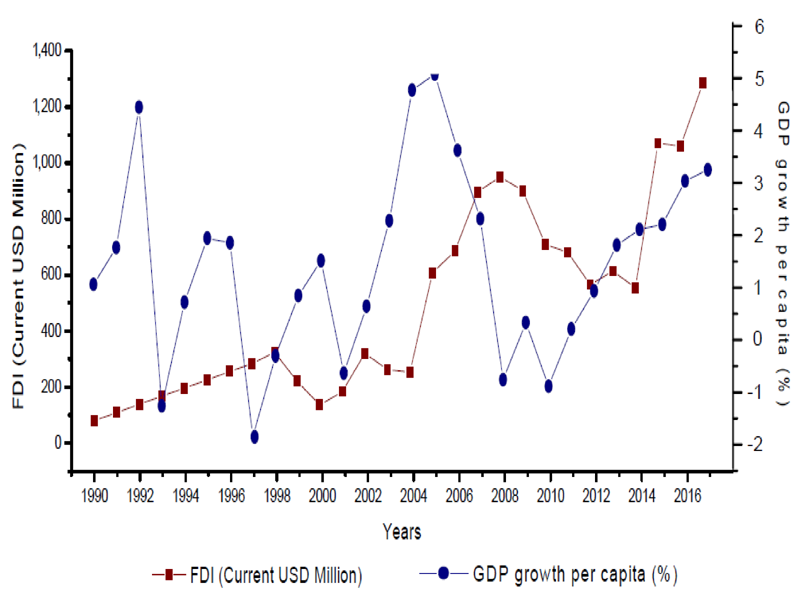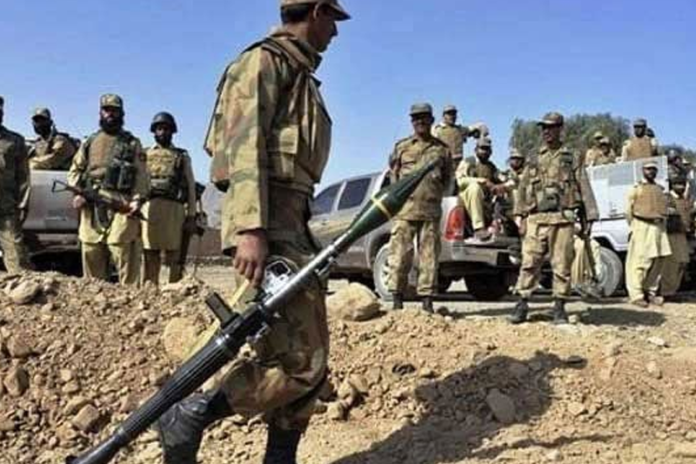Increase in foreign direct investment in power sector

- 187
- 0
Modern energy sources including renewable sources are indispensable for keeping the wheel of life moving and for sustainable economic growth, and it is very satisfying that as a result of the efforts of the Special Investment Facilitation Council, large-scale foreign investment is being made in the power sector.
According to the available data, a significant increase in foreign direct investment was seen in the energy sector in November. An investment of $ 414 million was made in the first four months of the current fiscal year, which constitutes 46 percent of the total foreign direct investment. This investment in renewable sources, including power, oil, gas and solar, is part of a larger investment of $ 585.6 million. In order to obtain energy from renewable sources, initiatives such as the investment of $ 200 million to convert a thermal plant into a 300 MW solar facility and the establishment of a GW 3 solar panel and battery manufacturing plant in Karachi are particularly noteworthy.
However, the circular debt, which has reached more than 2.6 trillion and is constantly increasing, is a major challenge for the energy sector. The main reason for this is the poor performance of the government-owned power generating companies, i.e., the DISCOs. Due to failure to control power theft and losses in transmission and distribution, these companies have become a burden on the national exchequer, which has made their privatization inevitable. The significant reduction in the prices of solar systems in the country has made its installation in homes, shops, offices and mosques very common. The measures taken to manufacture solar panels and other accessories in the country are also helping in solving the energy problem on a permanent basis.
There is also a huge potential for generating electricity from wind in our coastal and desert areas, so considerable attention should also be paid to the promotion of wind energy for economic development. As a matter of fact, the energy crisis in the form of high petrol andelectricity and gas prices, the common man is finding it difficult to make both ends meet. Economists believe that due to the current electricity crisis, Pakistan is suffering from economic recession. Due to this crisis, poverty is continuously increasing and the lifeof the common man is deteriorating. According to the economic survey, every Pakistani used to spend 7% of his income on electricity and gas, which is now around 10%. In comparison, developed and developing countries spend an average of 5% in this regard. According to the 2022 report of the International Energy Agency, Mexico spends 5.5% of energy, Indonesia 5%, Great Britain 4.8%, while the United States and Canada only 3%.
Despite spending more per capita on energy than other countries, each Pakistani consumes only 3895 kilowatts of electricity in a year, which is one of the lowest energy consumption in the world. While Iran, Eastern Europe and China consume 10 times more electricity per capita than us. And even India's per capita energy consumption is twice as high as ours. On the other hand, our cost of generating electricity is the highest in the region because about 60% of electricity is generated from imported oil, furnace oil, LNG and imported coal, while only 40% is generated from hydro, nuclear, solar, wind and biogas. It should be remembered that the cost of generating electricity from Thar coal is 12 rupees per unit while the cost of electricity from imported coal is 25 rupees per unit. Here it is very worrying that our rulers are more inclined to buy electricity from IPPs. In the past there was no focus on alternative sources of energy, nor were they looking for new wind power generation corridors.
That is why Pakistan biggest problem today is to give 2 trillion rupees to forty IPPs. Currently, various IPPs are completely closed, but the government of Pakistan is continuously paying them capacity. It should be remembered that the cost of generating electricity from Thar coal is 12 rupees per unit while the cost of electricity from imported coal is 25 rupees per unit. Here it is very worrying that our rulers are more incined to buy electricity from IPPs. There is no focus on alternative sources of energy, nor are they looking for new wind power generation corridors. That is why Pakistan's biggest problem today is to give 2 trillion rupees to forty IPPs. Currently, various IPPs are completely closed, but the government of Pakistan is continuously paying them capacity. Remember that from 2013 to 2022, 36 mills were installed in the wind power corridor between Gharo and Jhampir near Karachi, from where today 1845 megawatts of electricity is also being generated.
Experts believe that if more mills are installed in this corridor, the problem of cheap electricity in Pakistan can be solved forever. These mills get the amount of money the government buys from them and there is no mention of capacity charges in their contract. It is also surprising that owners of wind power mills are repeatedly asked by government agencies to generate minimum power from their mills. So far, we have not built the infrastructure through which the electricity generated here can be connected to the national grid. Even today 27 new energy plants that can generate 1875 megawatts of electricity from wind, while on the other hand, the government has planned to add 1000 kilowatts of electricity from windmills to the national grid by 2030. Economists around the world recognize the fact that the country in which there will be an energy crisis, that country cannot be prosperous because big industrialization cannot go ahead without it.
Today in Pakistan, about four million new youths are ready for employment every year, for which it is necessary that we set up industries on a large scale. We can generate electricity from Thar coal at Rs.4 per kilowatt, which can also be used in industries that consume a lot of electricity, including steel mills, aluminum smelting and petrochemicals industries. Also, shifting oil-fired power plants to Thar coal would require more coal to do so, at an estimated cost of $1.2 billion over a five-year period, but in this way, we will convert 90% of our energy into local energy.

















































